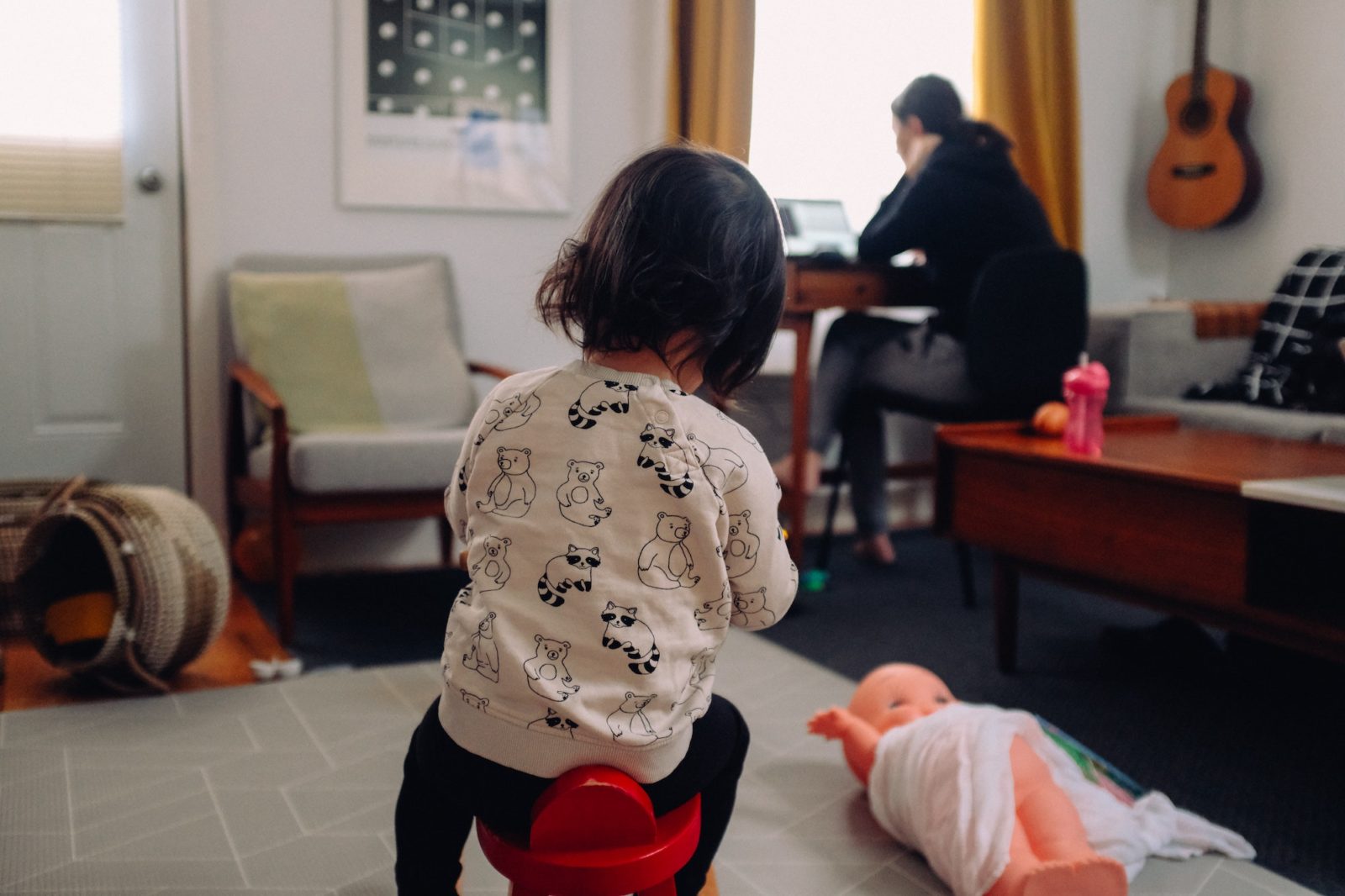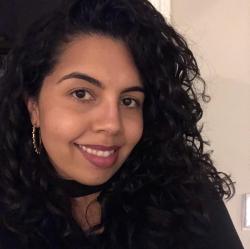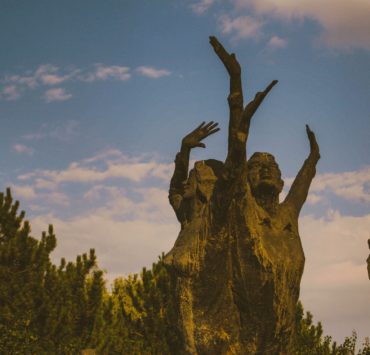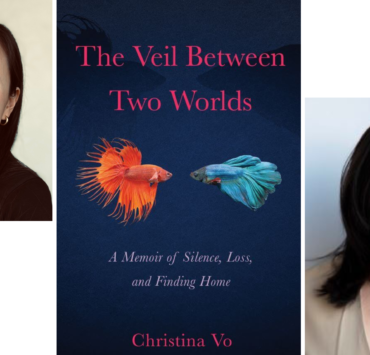
In a room with bright yellow walls and toys, where joy lives, I felt suffocated.
It was a recent Friday evening at home. I sat cross-legged on the floor with my laptop open to a short story I had written over a year ago for an anthology. The project had finally landed in a contract agreement with a publishing house, a thrilling development for a journalist like me who began writing creatively only a few years ago.
My editors wanted me to revise the piece – to build out the interiority of my narrator and iron out the chronology. I understood the assignment. Determined to be a writer who pens a beautiful, heartbreaking thing, I couldn’t wait to see my words contained in tangible form and for others to consume and react the way readers do – unpredictably. Nobody was pushing me to do this. Within me was a self-imposed need to prove to myself that I could.
But it’s difficult to focus on craft with my one-year-old son pulling on my shirt and clamoring on me like an ant. I sat on the carpet in my children’s playroom, doing my best to reposition him and my screen. My precocious three-year-old then asked me in his crushingly sweet voice to color with him. But by then I was touched out and colored out. As I edited the tense in my story from past to present, I strained to listen to my fictional characters’ voices over my baby now banging a caterpillar-shaped maraca on my laptop tray.
My husband may have stepped away to shower, or perhaps he was in the kitchen putting dishes away. He was somewhere else in our house, but this detail is neither important nor germane to my point. What I do remember starkly about this evening is being momentarily alone with my two boys and a heaviness that I can’t describe.
I took full, deep breaths.
The cursor on my Google Doc blinked, as if telling me this story could not revise itself.
I scolded myself for being foolish enough to think that I could simultaneously write and mother.
Feeling let down and unsure by whom, I retreated back to the place I became acquainted with from the moment my eldest son was born: stopping whatever I am doing – even if it’s what I love – to be present with my children. Even at my own expense.
I felt the familiar tug of mom rage. Why can’t they play on their own? Why can’t I be left alone just for a short time?
Why does this have to be so fucking hard?
* * *
The great Julia Alvarez calls it a “pebble in her shoe.” It’s a restlessness that bothers the novelist and poet enough to write from within. To write and write and write until her hands have birthed a book. It is a nuisance, really, to try to shake this feeling. But this urge is what brings many writers’ works to the world, books born from a need to tell a story.
I’ve been thinking a lot about this small stone, this inquietud. When I became someone’s mother in 2019, the earth underneath me shifted. I had to regain my footing and figure out who this new woman was. Her stomach now lined with red stretch marks; her body having vacated another human. And the ground moved again in 2021.
My role as a mother of two has turned my own restlessness to write into a volcano. An intense shaking to put words on a page, to let letters rupture. A few times, my mind has floated above my body as I’ve dreamt of publishing a book someday. Then, just as fast, I crash. A sense of urgency trails me now because I’m a mother. After work, the bulk of my evenings are for my children. The weekends are for my children. What little time is left, if I’m motivated and manage to pull from my dwindled well of energy, is for creativity.
I recognize the weight of motherhood. The last thing I want to do is hurt my children. I strive to always treat them with the respect and dignity they deserve. Are they happy? is a question I ask myself all the time. I want to be a good mom. I want to do everything in my power to prevent the extreme: them as adults, dedicating whole therapy sessions to me on the many ways in which I failed them. Let me do the work necessary to ensure they grow up to become healthy and happy adults.
But, if you will allow me to confess: My long-held aspirations did not stop existing when my children were born. I still want to tend to my dreams, to see if I have it in me to work on them until they’re solid and true. I don’t want to be a martyr parent. Does that make me selfish?
I of course can’t talk about motherhood without feeling obliged to gush about my boys first. That’s what good mothers do, don’t they? And I am a good mother. At least, that’s what others tell me. I love my children and would do anything for them. I would. This paragraph serves as confirmation that my boys are indeed my smallest and biggest joys. On tough days I call them blessed children so as not to call them something else. Mis bendiciones. I mean it.
Gush #1: Every night while lying on his Captain America bed, my eldest son rests his head on my left shoulder while I read him books about tractor trailers and animals who feel. I even do the funny voices – high-pitch for a mouse, gruffness for a bear, the vroom of a fast car. When my son giggles, his eyes shrink into crescent moons like his father’s. My insides collapse at the sound of his laughter.
After a few books, it’s lights out. I tuck him in and kiss him good night. Then I lay near the foot of his bed and wait for him to fall asleep.
“Mami?”
“Yes, baby?”
“I love you.”
This statement – so simple and pure – surges with love. And the best part is it comes from him.
Gush #2: People say my baby and early birthday present looks a lot like me. He was born with a mop of dark hair and has expressive eyes. He trails behind me, raising his squishy arms. I melt at the sight of his pudgy palms. He always wants me to carry him. And I do.
My children are loved and well-cared for. My husband and I – and the cruelly expensive gift that is daycare – keep them alive and breathing and laughing. We also have a village of family and relatives that help us when they can. I cater to my kids. On car rides, I take music requests from my eldest son who loves music by Ray Charles and Chuck Berry. I’m a human chair for my baby, who prefers my lap. I’ve searched all over the house for tiny matching socks for him so strangers in the street won’t judge me. But for a quick grocery run I’ll leave the house with a barefoot baby because I’m not a precious mother, either.
I know I’m a good mother. Now do you believe I’m a good mother, too?
* * *
These two roles I inhabit – writer and mother – won’t let the other live in peace. Writing in my free time – when I have the energy – has become an elusive thing, a tease. Several times a week, I fight against the institution of motherhood. I fight for a sliver of time, for a semblance of my old, pre-children life when I had more free time than I knew what to do with. Some days, I don’t have the fight within me.
And as a mother, I care for, wake, feed, bathe, dress, clean up after, comfort, teach, entertain, counsel, rock, kiss, dance with, play with, read to, organize for, advocate for, help heal, and heal.
Last summer, I had returned home from a family vacation in the Dominican Republic. As I settled back into work, I didn’t pay any mind to my scratchy throat. My husband, out of precaution, urged me to take an at-home COVID test.
That Friday evening, we watched in horror as the test drew those two pink lines that signal a positive.
As my husband prepared to test himself and the boys, he banished me upstairs to immediately begin self-quarantining. There I sat, in my home office where I work a few days out of the week for my full-time job, and where I work on fiction at night. I would sleep downstairs in our guest room.
Thankfully I had very mild symptoms. My throat ached and I was nursing a headache. I knew I was lucky. I knew about the severity of the coronavirus for the millions of people who have died from complications.
Yet here I was, in a space of my own. A space where no one else was allowed to inhabit. I couldn’t care for my children because doing so would put their health at risk. I didn’t have to fetch snacks for anyone, or wipe any snotty noses, or break up any fights. I didn’t have to engage in the relentless ping-pong of catering to two children, to the teetering between what’s right, what’s wrong, and what I can manage for now.
So I settled into my very own bootleg writing residency. Holed up in my home office, with no baby trying to climb on me and no toddler asking me to color with him, I felt relief. Even writing this small detail out into the world ushers in a fresh wave of mom guilt. That same feeling prodded me over the next few days, especially if I heard the distant cries of one of my children.
But my God, I was able to get so much done. In just one day I finished reading a book I had been struggling to make time for and wrote a review of it. I made progress on a novel I’m working on. I read and wrote and read and wrote, undisturbed, while my husband left cups of coffee and meals outside my door.
Later, I shook my head at the ridiculousness of it all. My prayers had finally been answered: I got time to write. But it took me contracting COVID to get it.
* * *
One Monday evening this past December, exhaustion weighed heavily on my body. I had spent the entire weekend with my kids, and I desperately wanted to work on my book. My eldest son had come home from daycare in a foul mood. And when this happens, I tend to bear the brunt of it as his mom. So I did the delicate dance of trying to keep him distracted with workbooks and music and things he likes.
We marched on with our evening routine. First dinner, then opting for coloring time instead of reading time. Next was bath time and, finally, the light at the end of the tunnel: bedtime. All appeared to be on schedule.
Yet as I tried to put my eldest son to sleep, what began as whining quickly became a tantrum – a destructive tornado of screaming and crying and hitting. He wanted his father. He didn’t want to sleep in his room. And he refused to listen to me.
“I want to sleep in your room!” he cried.
I gathered the remaining dregs of patience I had and tried to reason with him. I did a quick mental calculation: if I let him leave the room in search of my husband, he would surely wake up the baby who was falling asleep in his crib that very second. That could end up in both kids being wide awake, which would set my husband and I back from continuing with our night routine. And most importantly to me, it would cut into the writing time I so desperately wanted.
“Papi is putting the baby to sleep. It’s time for bed,” I told my son, doing my best to sound firm.
I carried him back to bed. He popped back up again and made a run for the door. Around and around we went. I lost count of how many times I tried to get him to lay on his pillow.
Finally, I locked us in the bedroom and sat against the door so he couldn’t get out. He scratched me and hit me.
“I’m sorry,” he said a few minutes later between sobs.
But, then he began again–my son tried pushing me out of the way. It was when he began trying to hit me again that my rage, which had been simmering, erupted. That’s when I lost it.
I grabbed his wrists.
“Stop it!” I yelled. I wanted to scream so the whole city could hear me. “Stop hitting me!”
My body was no longer my own. In that moment, I was the monster from under the bed.
My son grew quiet. His eyes widened. He looked frightened.
As he tried again to push me off the door, my hands reached in my pocket for my phone.
“I’m about to have a breakdown,” I began texting to my husband.
I paused. I deleted the message. I didn’t want to be looked at as overdramatic and incapable of controlling myself around our child. But I needed someone to step in and help me.
“This boy wants you,” I wrote instead.
Soon after, my husband unlocked the door. He spoke to our son with a gentleness I could no longer afford, nor wanted to extend. He then escorted our son to our room.
By now my face was wet with tears. I do not recall when I had begun crying. My hands shaking, I stayed behind on the carpet floor, crumpled like a leaf.
Without realizing it, my brain has done a good job of blocking out my mom rage. These moments sweep me and other moms into something unrecognizable. I’m ashamed of the times I’ve let my own desires for creative fulfillment cloud what’s happening before me in real time, especially as it relates to my kids. But forgive me for saying this: I’m fighting for me. My therapist says she loves how I have a strong sense of self, and that I strive for it.
We truly don’t know what to expect when we become mothers. We don’t know just how much our hearts can hold until these little beings are here. Nor do we know how encompassing and wondrous and maddening it’ll all be.
I recently watched The Lost Daughter, a psychological drama film by Maggie Gyllenhaal about Leda Caruso, a woman whose vacation in Greece takes a dark turn when she starts confronting her troubled past as a mother. I was warned that the film, based on a novel by Elena Ferrante, could be triggering. When I saw a young and checked-out Leda laying on the floor while her daughter, Bianca, brushed her hair, I felt that. When a young Leda had mom rage, I felt that. And when a young Leda refused to placate her daughter over a booboo, I felt that, too. I almost couldn’t stomach some of these scenes because they felt familiar.
Young children demand your energy. And good mothers give all of themselves, don’t they? Is that not what good mothers do?
* * *
A few weeks after that extra bad night in December, the miraculous happened. Sensing my desire for a break from our boys (and for my mental health) and my desperation for uninterrupted time to write, my husband had an idea. “Why don’t you go somewhere to write?” he asked. It should ideally be far enough for me not to feel any gravitational pull to home. He suggested New York – my place of birth and one of my favorite cities in the world.
So off I went with a carry-on maleta and backpack containing a printout of my work-in-progress and my Freewrite device. I made myself comfortable in my abuela’s apartment in my old neighborhood of Crown Heights, Brooklyn, and I wrote. In just a few days, I wrote thousands of words. And as I boarded my flight back to Florida on the day before Nochebuena, I felt lighter and filled with a kind of naked joy. A weight that my body felt saddled with for months had been lifted a bit. With support from family, I’d done what I had been fighting so hard to do: make more progress on my project. It wasn’t completed, but it was enough for me in my life with motherhood and a full-time job and the daily grind at home.
My husband picked me up from the airport and I gushed about all I had accomplished in those few days. I was grateful to him for making sure all was right at home so I could do this. Time is gold, and I was able to adorn myself in it freely.
When we walked through the front door of our house, I was met by my eldest son’s cries.
“Mami! Mami!” he squealed as he ran up to me. His tiny teeth, like Chiclets, showed themselves. I’ve never seen him smile so wide. I carried him to the living room couch.
As we snuggled, he clung to me.
“I missed you so much, Mami,” he said, in his still achingly sweet voice. He repeated this several times in the days that followed. His overflowing excitement was startling. I was gone for only a few days and was so happy to be doing my thing. And yet during that time, my absence carved its own space in my son’s world. As I recounted this to my therapist later, I was overcome with emotion. Tears flowed as I voiced out this complicated thing – to be a parent, to have your dream, and to try not to have one suffocate the other.
You know that pebble in my shoe? It’s still there, tiny and sharp. No matter how much or hard I shake my foot, it won’t let me be. So the other day I wiggled my feet until the pebble nestled in between my toes. I am learning to mother and write and embrace the messiness of it all. Inspired by advice from Aida Salazar: we are writing in the spaces, in the fragments that are around.
Read more on the intersection between motherhood and writing from Amaris Castillo:

Amaris Castillo is a Brooklyn-born journalist, writer, and the creator of Bodega Stories, a series featuring real stories from the corner store. Her journalism has appeared in The New York Times, the Lowell Sun, Remezcla, Latina Magazine, Parents Latina Magazine, and elsewhere. Her creative writing has appeared in La Galería Magazine, Spanglish Voces, PALABRITAS, Dominican Moms be Like..., Quislaona: A Dominican Fantasy Anthology, and is forthcoming in Sana Sana: Latinx Pain and Radical Visions for Healing and Justice. Her short story, "El Don," was a finalist for the 2022 Elizabeth Nunez Caribbean-American Writers’ Prize by the Brooklyn Caribbean Literary Festival and her short story, “The Moon and the Sun,” was longlisted in 2021. Amaris currently lives in Florida with her family. You can follow her on Instagram @amariswriter and read her stories from the colmado at bodegastories.com.







